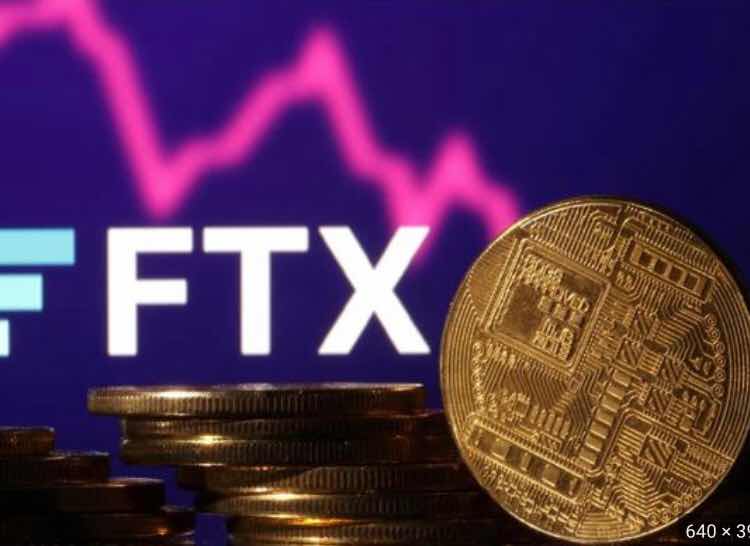
近日加密貨幣交易所FTX爆雷,很多YouTube 片都是花生片,以食花生的形式,將全件事的過程娓娓道出來,事實上,這件事又真的能夠拍成電影,這是一個Enron 事件和馬多夫案的合併翻版,並非只有crypto 界才會發生。
FTX跟Enron 事件和馬多夫案有什麼相同之處?看出了重點,你便會從中學懂一些事情。
其實blogger 小薯的文章「幣圈安然,FTX爆雷,有無野可以學到?」,詳盡分析了FTX的姊妹公司Alameda Research資產負債表的問題之處與上市公司可同樣做出的會計詐騙安排,我們從中學習教訓,才能令自己升「呢」。
簡單而言,FTX 事件是透過姊妹公司Alameda Research持有大量FTX的原生幣FTT,令FTT貨源歸邊而長期承托著幣價,令FTT成為有價值的資產,然後FTX 的創辦人SBF(Sam Bankman—Fried)可以借錢及投資在其他crypto 項目,建立起FTX投資王國,同時成為可與Tesla創辦人馬斯克級數平起平坐的有錢人。但當coindesk 公開了一份Alameda的資產負債表,競爭對手幣安的創辦人趙長鵬看出他的弱點,在社交網Twitter公佈全數拋售早期投資的FTT, 造成了客戶爭相擠兌,FTT的幣價流血不止,再也冇法承拓而爆雷。
FTX事件涉及客戶資產9億美元、債務缺口80億美元,在SBF宣布旗下公司破產之後,有10億美元客戶資產傳説從交易錢包後門被盜走清零,FTX 爆雷前市值320億美元,即使之後拖垮Genesis Block 和 BlockFi, 涉及損失金額,加起來相信也不及比實體世界同類案件爆雷。
FTX 爆雷當中涉及知名基金,但據他們的聲明,損失只是基金的1%,甚至以下,紅衫資本投資於FTX 的金額若1.2億美元,相等於其總投資額的1%。很多人議論紛紛的Ontario Teachers Pension Plan只投資了9000萬美元,低於一億美元,佔基金總投資額少於1%。
被視為FTX同類事件,是在2001年10月發生的Enron 事件,是很好的比對。Enron 事件是透過一些審計漏洞而逃過監管法眼做出詐騙天仙局。Enron是由兩間能源公司:侯斯頓能源公司和 InterNorth 能源公司合併而成立的,Enron透過天然氣買賣交易合約賺錢,那些交易合約多次轉手而推高天然氣價格,使它成為北美最大的天然氣供應商,後來它的業務範圍擴展至世界各地,成為跨國巨企,業務涉及範圍包括天然氣管道、發電廠、木材、網絡服務供應商等等。
但其實它的巨額營利是透過未實現的長期合約收入以mark to market入帳,從而托高營利,1996至2000年營業收入大升750%,另一方面透過成立專項公司(Special Purpose Entities),把損失撥入這間專項公司,從而收藏壞帳。這些假帳目導致每年營收大升,股價大升,但當事件被揭發之後,其股價從2000年中每股90.75美元暴跌至2001年11月底低於1美元,跌幅九成。事件亦令到當時五大跨國會計師行之一的Arthur Andersen被解體。這是美國歷史上最大破產案,涉及750億美元損失,20000員工的401K變零,當中受牽連的企業包括Credit Suisse Group AG, Deutsche Bank AG和Merrill Lynch 因投資了它的股票而蒙受巨大損失。
FTX 和 Enron相似之處是帳目造假,把見不得光的數字移離法眼!而FTX事件跟馬多夫案件相似之處是一些大型企業都踩雷,原因是名人或出名的大企業投資了的裙帶關係,而令受害者眾多。.
從網上未證實的消息,FTX的創辦人SBF 與監管機構關係千絲萬縷,他和員工的MIT畢業背景,給人印象良好,令人相信他,另外美國財長Gary Gensler是MIT區塊鏈講座教授,也是美國證監SEC主席,他的SEC前上司Glenn Edison是SBF的女朋友Caroline Edison 的父親,Caroline Edison 也是姊妹公司Alameda Research 的CEO, SBF的母親是前民主黨總統候選人Hillary Clinton的律師。以下是他們的關係圖:

馬多夫案之中,很多名人、名牌銀行中伏,成為馬多夫龐氏騙局受害者,均是因為貴族背景及金融業界內高層關係千絲萬縷所造成。
馬多夫龐氏篇局在2008年爆雷,事件主角伯納馬多夫是前納斯特克主席,後來自己開了馬多夫對沖避險基金及成為華爾街上市公司。龐氏騙局的開始是由他所屬的猶太行政人員和組織,透過承諾巨大交易回報和造假的頻繁交易製造大量財富,再吸引更多投資者入局,而馬多夫是證券及金融投資市場協會SIFMA(Securities and Financial Markets Asssociation ) 的董事,他的太太是協會的合規官和法律顧問。這個協會會員包括證券行、銀行、投資銀行、資產管理公司,代表着美國和全球大小金融業界,經其會員處理的資產總額為185萬億美元,管理着個人及企業資產達65萬億美元,可說是來頭不小!他的知名度和業界超然地位令他的騙局可信性更高,而且他的對沖基金公司是上市公司, 是受監管的企業。
事件爆雷之後,損失金額巨大的受害者包括多間知名集團、銀行、對沖基金:
* Fairfield Greenwich 集團75億美元
* 萬通金融集團旗下的對沖基金Tremont公司 33億美元
* 桑坦德銀行(Santander)28.7億美元
* 奧地利銀行(Bank Medici AG )21億美元
* 富通(Fortis Group) 13.5億美元
* 瑞士銀行10億美元
* 匯豐銀行10億美元
* 瑞士BENBASSAT & CIE私人銀行 9.35億美元
* 法國外貿銀行4.5億歐元(6.05億美元)
* 皇家蘇格蘭銀行6億美元
中招的還有很多名人和銀行
* 通用汽車金融服務公司董事長莫金(Ezra Merkin)
* 法國巴黎銀行
* 野村控股
FTX、Luna幣和三箭對沖基金的爆雷,其實最主要是人的問題,君不見比特幣、以太幣為何沒有債務問題?即使廢廢地的litecoin 、Dogecoin ,它們從比特幣出世年代已經開始有,Bitcoin 、Eth、litecoin 、dogecoin 都沒有接受過名人、VC大額資金投資,但他們仍然能夠生存至現在,幣市多次盛極而衰,沒有破產倒閉,還可以在下一個量化寬鬆cycle時衰極而盛,價格多次跌了九成之後再升,在多次幣市cycle仍然存在,為何會這樣?我不給答案了,如果你能想通,這代表你已知道投資這些東西的竅門!
PS: 雖然我曾經出過YouTube 片插Solana不夠去中心化而導致經常死機,但由於區塊鏈上有其他生態圈運作,我認為Solana是應該不會死。

